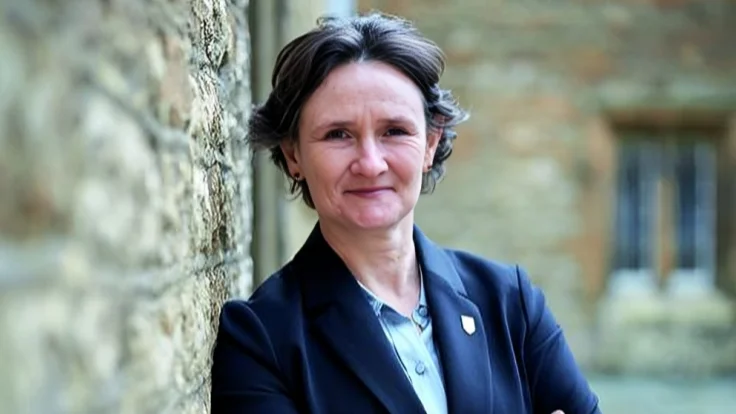A new research initiative, the ENLIGHT programme (Enabling a Lifecycle Approach to Graphite for Advanced Modular Reactors), has been launched to develop technologies supporting next-generation nuclear energy in the UK. The five-year project aims to address challenges related to securing a sustainable supply of nuclear graphite and managing increasing volumes of irradiated graphite waste.
The University of Manchester leads the programme in collaboration with the Universities of Oxford, Plymouth, and Loughborough. Funding includes an £8.2 million grant from UK Research and Innovation’s Engineering and Physical Sciences Research Council (EPSRC) and about £5 million from industry partners. The project seeks to strengthen the UK's position in nuclear innovation and advanced reactor technology.
Professor James Marrow from Oxford's Department of Materials said, "I am delighted to be leading this work on designing new graphite materials in this major project. Our initial focus will be on novel studies of mechanical damage to support the design and qualification of new nuclear graphites for advanced fission reactors."
Within ENLIGHT, Oxford is responsible for one of three main research strands: designing new graphite materials that can endure extreme conditions inside Advanced Modular Reactor (AMR) environments. Other strands include developing sustainable graphite sources and improving understanding of graphite performance.
Graphite plays a significant role in many next-generation AMRs, which are important for meeting the UK's goal of delivering 24GW of new nuclear power by 2050. The material represents roughly one-third of reactor construction costs, but currently, all graphite used in UK reactors is imported.
With the current fleet of Advanced Gas-cooled Reactors expected to be decommissioned by 2028 and over 100,000 tonnes of irradiated graphite already stored, ENLIGHT will explore methods for recycling legacy material as well as producing high-performance graphite suitable for future AMRs.
Oxford’s team—led by Professor Marrow and Associate Professor Dong Liu from the Department of Engineering Science—will use advanced analysis techniques such as Raman spectroscopy, X-ray diffraction, thermal reflectance methods, focused ion beam milling, and 3D X-ray imaging to study how radiation affects graphite at different scales. Their work also involves creating computer-based models predicting long-term material performance.
"ENLIGHT is a true opportunity to transform the design and manufacture of nuclear graphite landscape. This will not only benefit the UK enormously, but it will also provide an alternative, globally-relevant solution for managing nuclear graphite waste. We are extremely excited being part of this important national effort," said Associate Professor Dong Liu.
Professor Marrow added that some studies would use national facilities like Diamond Light Source for synchrotron X-rays and ISIS neutron and muon source: "This work will draw on Oxford’s expertise in studying how materials become damaged, observing these changes directly as they happen, from the atomic level upwards."
Associate Professor Liu noted that deep learning-powered image analysis would help identify components within nuclear graphite affecting its heat conduction abilities and stress resistance after radiation exposure: "This work reflects exactly what we do every day in the Department of Engineering Science, where we are passionate about solving real-world industrial challenges while also exploring the fundamental science behind how complex materials behave... What makes ENLIGHT stand out is its full lifecycle approach—supporting the design and production of sustainable graphite materials for next-generation fission reactors, whilst simultaneously reducing the cost and volume of waste graphite."
Further details about ENLIGHT are available on the University of Manchester website.

